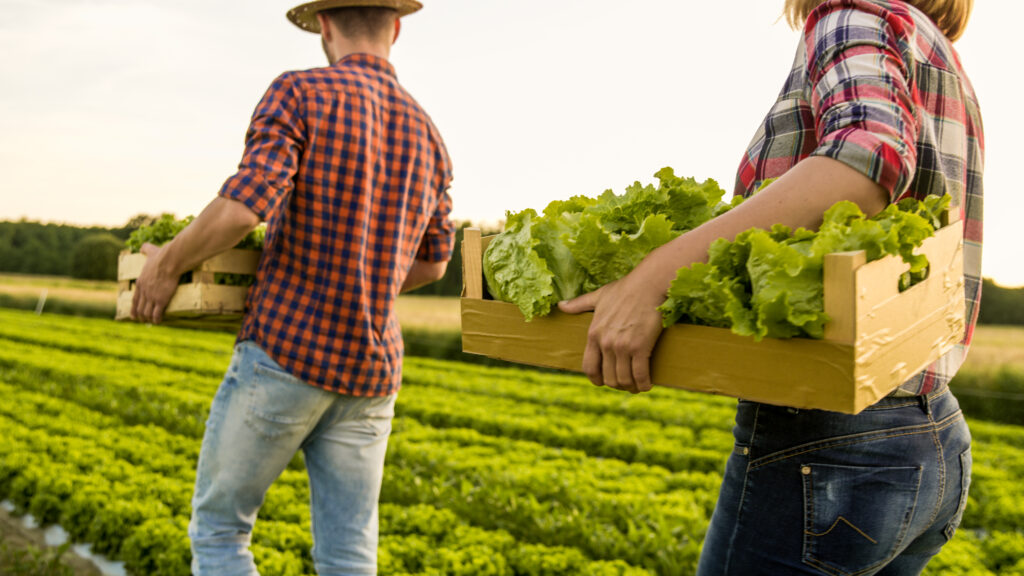With the global population on track to surpass 9 billion by 2050, the demand for efficient and sustainable food production systems is intensifying. Modern agriculture faces the dual challenge of increasing crop yields while reducing its environmental impact. In this scenario, biostimulants have emerged as an innovative, eco-friendly solution to enhance plant performance and contribute to sustainable food production.
Discover the European Commission’s perspective on the sustainability of biostimulants.
What Are Biostimulants?
Biostimulants are substances or microorganisms applied to plants or soil to stimulate natural processes. Unlike fertilizers, which provide nutrients, biostimulants work by enhancing plant metabolism and resilience. These natural or synthetic products improve plant growth, increase resistance to environmental stresses, and enhance the quality of agricultural produce, making them indispensable in sustainable farming practices.
Key Benefits of Biostimulants in Sustainable Food Production
1. Boosting Photosynthetic Efficiency
Biostimulants promote the synthesis of chlorophyll, which is essential for photosynthesis. Enhanced photosynthesis not only accelerates plant growth but also improves the plant’s ability to utilize sunlight efficiently. This leads to healthier crops and higher yields, supporting the growing demand for food in a sustainable manner.
2. Improved Nutrient Uptake
One of the most significant advantages of biostimulants is their ability to improve nutrient uptake and utilisation. Biostimulants optimise plant metabolism, stimulating enzyme activity and promoting better fertiliser utilisation, so they are able to improve nutrient use efficiency and reduce wastage, increasing nutrient uptake for growth and development.
3. Enhancing Stress Tolerance
Climate change has increased the frequency of droughts, extreme temperatures, and soil salinity, which threaten agricultural productivity. Biostimulants help plants combat these environmental stresses by fortifying their natural defense mechanisms. They support the production of antioxidants and other protective compounds, ensuring crop survival under adverse conditions.
4. Improving Crop Quality
Biostimulants influence the synthesis of secondary metabolites, which contribute to the taste, color, and nutritional value of fruits and vegetables. By enhancing crop quality, biostimulants enable farmers to produce high-value, premium-grade food while meeting consumer demand for superior produce.
The Role of Biostimulants in Sustainable Agriculture
Biostimulants align perfectly with the principles of sustainable agriculture. They support higher productivity without depleting natural resources or harming the environment. For instance:
- Reducing Chemical Dependency: By improving nutrient efficiency, biostimulants reduce the need for synthetic fertilizers.
- Preserving Soil Health: Biostimulants enhance soil microbial activity and structure, contributing to long-term soil fertility.
- Minimizing Environmental Impact: Biostimulants decrease greenhouse gas emissions associated with chemical inputs and mitigate water pollution through reduced runoff.

Embracing Biostimulants for a Sustainable Future
The integration of biostimulants into food production systems is no longer an option but a necessity for sustainable agriculture. As climate challenges intensify and global food demand rises, biostimulants provide a viable pathway to ensure food security without compromising environmental integrity.
Key Takeaways:
- Biostimulants enhance plant growth, resilience, and quality while reducing environmental impact.
- They play a crucial role in sustainable farming by reducing reliance on chemical inputs and preserving natural resources.
- Continued innovation and research into biostimulant technologies are essential to unlocking their full potential.
Let’s Build a Resilient Agricultural System
By adopting biostimulants, we can create a resilient agricultural system capable of sustaining future generations. Whether you are a farmer, researcher, or policymaker, the opportunity to embrace biostimulants and promote sustainable practices is now. Let’s harness the power of biostimulants to drive a revolution in food production, ensuring a healthier planet and abundant harvests for all.
Together, we can make sustainable food production a reality. 🌱
